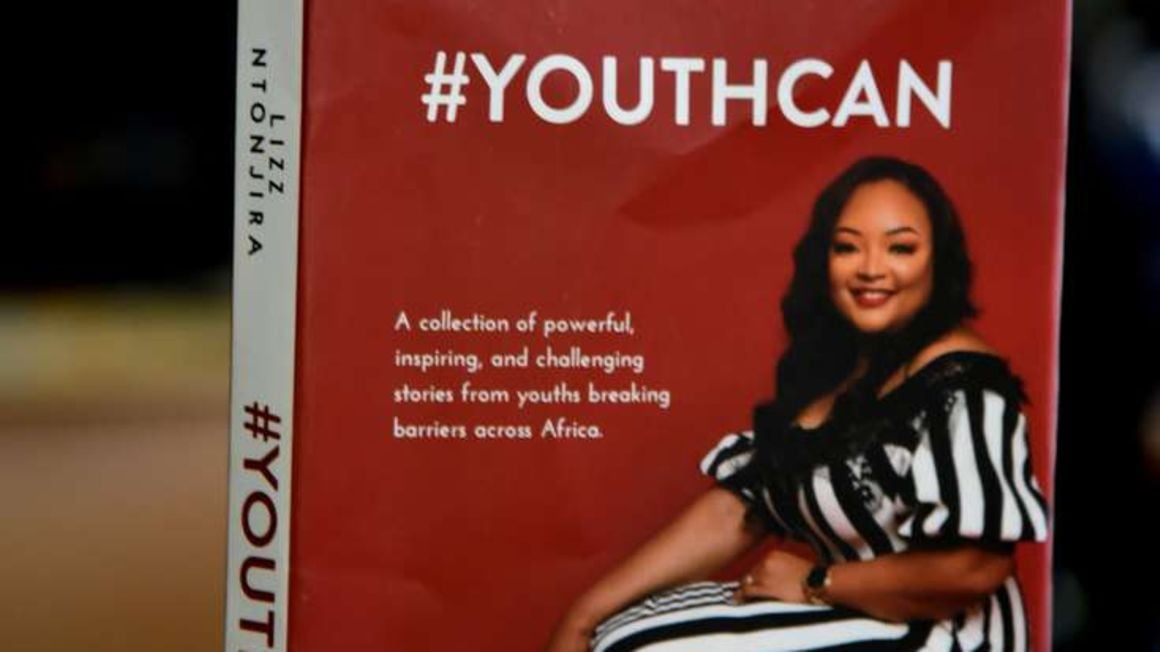
#YouthCan by Lizz Ntonjira is a book by Africans for Africans, encouraging younger generation to take command of their narratives and share them with their own words.
The former television presenter writes “this is a labour of love because of two things”, which are, her passion for writing and youth empowerment.
#YouthCan, a deliberately used hashtag in the title, “was a no-brainer for me” she writes, in-part, just so there’s just enough millennial, all the while seeking to be “a great resource for the older generation” with a “negatively skewed perception of the younger generation”.
In some ways Lizz hopes to be the bridge between generations in this heavily first person text with real life examples and stories from all corners of Africa, from the smallest of rural villages to the biggest cities.
Age and gender roles as well as discrimination from the core of the preface interlaced with personal experience carries the reader to the first of 12 sections which include service to the people, entrepreneurship, education, going green, sports, and research and development.
Lizz is a simple writer. It helps that she is articulate in explaining her thoughts and ideas, devoid of jargon. There is a heavy emphasis on the critical natures of government, private and developmental sectors intersecting at the need to prioritize the youth: an infinite resource as far as building the continent to greater heights goes.
To her, the biggest barrier is the institutional mindset. In some ways the hashtag in the title could be interpreted as an act of rebellion or, proof of how social media influences everything about the youth.
These 12 sectors in the book allow the reader to meet 38 young leaders and industry experts doing extraordinary things across 22 countries totalling to 50 stories of empowerment shared in 215 pages of the hardcover book.
This is a simple book, a genius idea, born of social media interactions, that is through Twitter, LinkedIn, Facebook, WhatsApp leveraged to build partnerships for seeds of change.
From Rwanda’s former transport minister, now an Ambassador to Singapore, Jean de Dieu Uwihanganye who’s message is clear “Africa’s young population is the future”, to Georgina Auma, a 33-year old Kenyan running Deaf Girls Education Foundation who writes “the most significant barrier to Africa’s advancement is poor governance”, to nine-year old Nigerian Grace Busari who came up with Grace Teddies and encourages “the children in my generation to use their social media platforms for good” and when people say she is just a child, she writes, “it gives me more encouragement to do better”.
There are stories that will move you, stories that will seem familiar to you. Among the eminent Africans in the book is Prof Bitange Ndemo. His letter starts, “Dear Young Africans, I was born 60 years ago”. The former ICT PS writes he’d be in his then office by 5am, before seeing his first appointment at 6am. The US-educated professor underscores good old fashioned values that are easy to forget when you are young and in the rat race. “Good quality work is rare, but demand for it is abundant.” He goes on to write, “Do your job to the best of your knowledge and ability.
That is where success comes from whether you are advantaged or disadvantaged.” #YouthCan is an integral part of the African story. A worthwhile read, and I daresay a light for this generation.




No comments :
Post a Comment